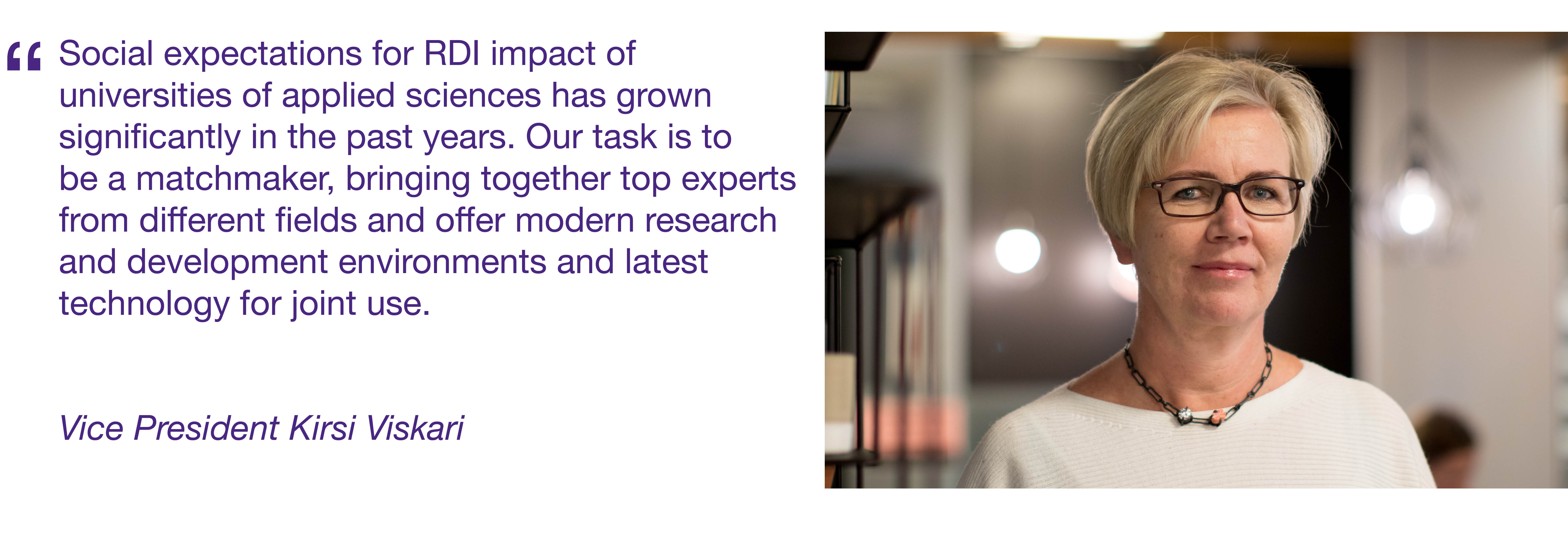
Project activities strengthen and forms of activity develop
Our systematic and target-oriented investment in research, development and innovation (RDI) and its impact became visible in 2019: our total project volume grew to a record level of 18 million euros. This is a continuation of the growth trend of several years in which our strategic focus areas and our staff’s wide participation had an important role. Our funding has become more diverse through multidisciplinary projects and active project development cooperation in international networks. The impact of project activities has also risen in traditional financial instruments.
To strengthen our research and development and increase cross-cutting in all fields, we developed new impact area activity in 2019 as a part of TAMK’s new strategy. We selected three themes in the impact focus areas: learning in working life and international networks, use of new technologies, and ecological innovations and sociocultural challenges. The new strategy aims at making TAMK also internationally known for its effective RDI which combines science and practice.
Working life orientation and our cooperation organisations’ needs are the leading lights of all our RDI. A large number of SMEs, public organisations, associations and individual learners participated in our RDI projects in a variety of fields in 2019. Majority of TAMK’s RDI projects apply living lab methods. Joint development usually takes place in our cooperation partners’ facilities.
A field lab environment for industrial enterprises was introduced at TAMK main campus. A learning environment for social and health care enterprises and organisations called Sote Virtual Lab will be opened in spring 2020. As a spearhead, TAMK profiled in use of genomic data in health care.
The focus of innovation development is on strengthening students’ innovation skills. To achieve this, we cooperate closely with Tampere University. Y-kampus is a key actor in Tampere Universities’ innovation culture development programme. The Y-kampus activities were extended to company-based challenges, commercialisation competence and social innovations.
